Meet the 6 women entrepreneurs who want to drive change with their sustainable living startups
Multiple studies show that the future of the world is bleak if we don't mend our ways and adopt green living practices. These six women entrepreneurs are encouraging people to adopt more sustainable lifestyles with their socially and environmentally conscious products.
According to the United Nations, we have less than 12 years to implement strong and strict courses of action to control the damage done to the environment over time. Unless individuals and nations work together and take climate change seriously, we are headed towards certain irreversible doom.
To help bring about change in mindsets and lifestyles across India, these six women entrepreneurs are promoting sustainable living through their startups.
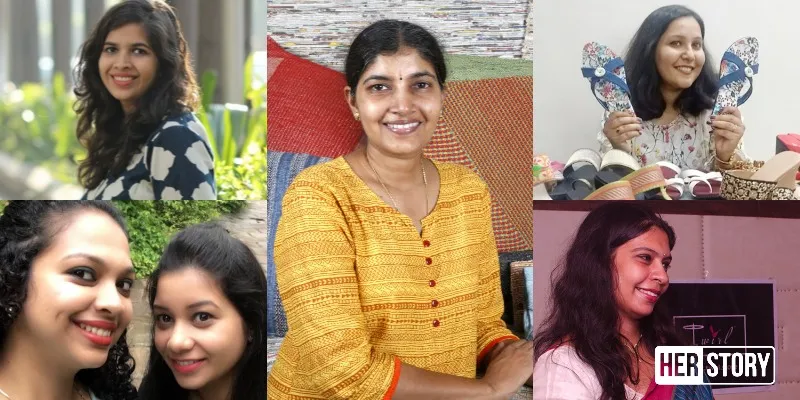
(L-R Clockwise) Bandana Jain, Neerja Palisetty (centre), Pooja Apte-Badamikar, Sujata Chatterjee, Nishi Bhuvandas and Uttara Ramkumar
Bandana Jain, Sylvn Studio
Mumbai-based artist Bandana Jain manufactures décor products from corrugated cardboard and empowers women along the way. Through her startup, Sylvn Studio, she designs and sells eco-friendly, handcrafted furniture.
Hailing from a small town herself, helping women from villages is also one of Bandana's priorities. The products at Sylvn Studio are made by women in rural areas on the outskirts of Mumbai. Because of this, women are able to stay financially independent and put their skills to good use.
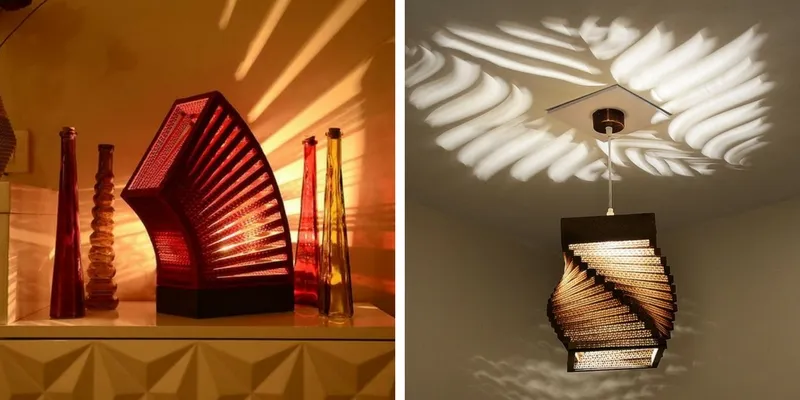
Sylvn Studio offers home decor products made from cardboard.
Bandana has faced a few challenges such as customers’ misconceptions about the durability of corrugated cardboard and convincing them to give the products a try.
"Corrugated cardboard is used to make shipping boxes and it is most sturdy as it is used to package electronic items. It is different from normal cardboard as there is a corrugated sheet between two flatliners. Though light in weight, it is strong," she says.
Décor products at Sylvn Store are priced between Rs 2,000 and Rs 20,000, and can be shipped anywhere across India.
Sujata Chatterjee, Twirl.store
Sujata Chatterjee started Twirl.store in 2017 as an initiative to "reduce cloth wastage, encourage women empowerment, conserve natural resources like water, and meet the clothing needs of the less fortunate".
With Twirl, Sujata aims to help consumers with overflowing cupboards, and the millions of people who struggle to find basic clothing. The team is also completely made up of women.
Twirl collects unwanted clothes from people and rewards them with points that can be redeemed to buy upcycled products on the website. The clothes that have been collected are then either donated or upcycled to create new products.
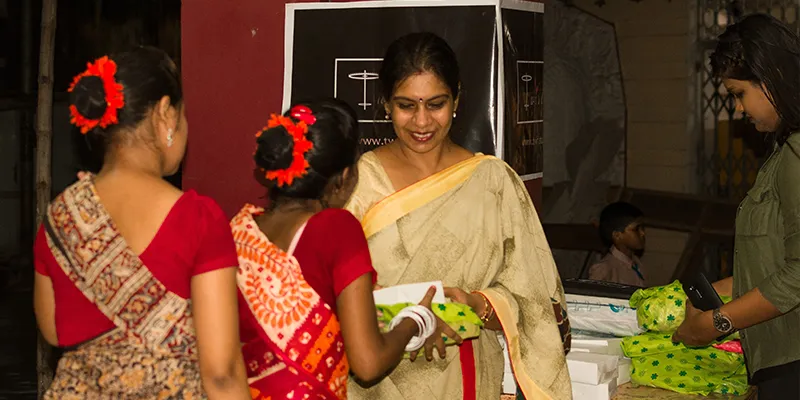
Sujata with the women she empowers
The upcycling process is done predominantly by women in rural Kolkata, and Sujata feels Twirl's real achievement "is in being able to empower so many women and to have provided clothing to nearly 1,500 needy people, especially children and the elderly".
Sujata says she was met with negativity and criticism from people who were sceptical about her being a woman entrepreneur, starting an ecommerce business. However, the more she was discouraged, the more determined she became to succeed.
So far, the Twirl team says they have upcycled over 10,000 products and given new life to over 2,000 pieces of fabric.
Nishi Bhuvandas and Uttara Ramkumar, SoulPure
Founded by friends Nishi Bhuvandas and Uttara Ramkumar, SoulPure offers chemical-free bath and body skincare products through online channels in India and the Middle East. The startup manufactures "100 percent handmade" soaps that are rich in natural glycerine.
The co-founders say that all the ingredients that go into the soaps are sourced from the US and are USDA-organic approved and IFRA (International Fragrance Association) compliant. Some of the butters are also sourced locally from organic certified wholesale sellers.
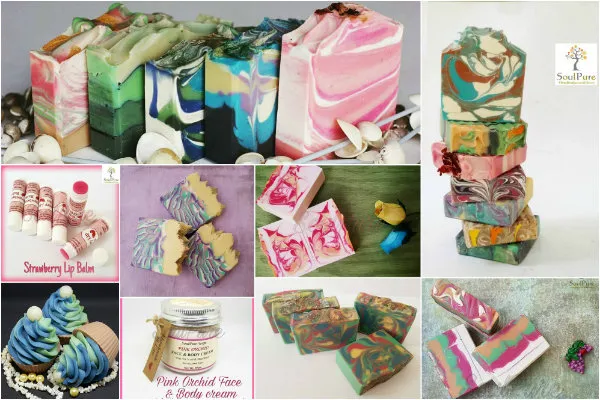
Products by SoulPure
SoulPure also strongly stands against animal cruelty. Nishi and Uttara ensure that none of their products are tested on animals, and source raw materials from cruelty-free companies and through fair trade distributors.
"We have always thrived to be environmental-friendly beings, by giving our best to Mother Earth,” says Nishi.
The initial challenge the duo faced was creating awareness about the harmful chemicals used in regular, store-bought soaps. They also faced some difficulty in keeping their prices affordable while sourcing raw materials from the US. However, they have overcome these hurdles and are operating successfully today.
Pooja Apte-Badamikar, BlinkGreen
BlinkGreen by Pooja Apte-Badamikar upcycles tyre scrap to make fashionable and durable footwear that is eco-friendly and sustainable.
Pooja says waste tyres are usually used only in bigger industries because breaking them down is very expensive and can cause air pollution, if not done the right way. After doing some research, she concluded that upcycling them would help the environment, and decided to launch BlinkGreen. Her line of footwear is called 'Memital'.
Since the business is still in its initial stages, Pooja sources truck tyre scrap in the form of strips from an 80-year-old ragpicker in Pune. She gets the colourful cloth stitched by tailors, and gets cobblers to handcraft the footwear.
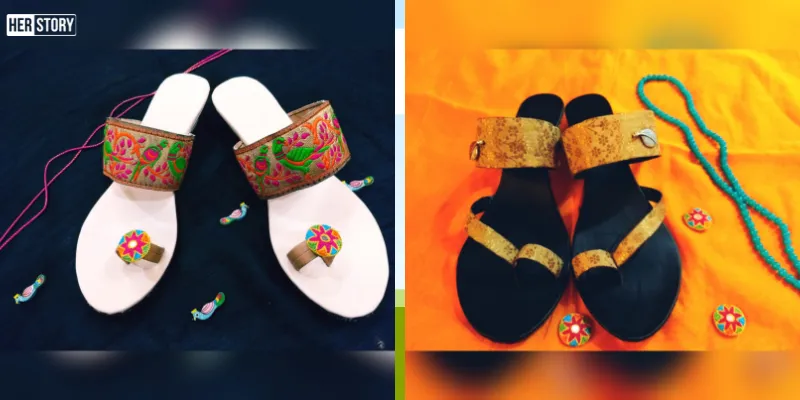
BlinkGreen upcycles tyre scraps into on-trend footwear.
Pooja did face some initial difficulty in convincing cobblers to handcraft shoes as they felt the practice was outdated and no longer viable.
So far, BlinkGreen has produced over 70 pairs of footwear, and Pooja plans to scale up by selling them on various ecommerce websites. Currently, the footwear is priced at around Rs 500 for each pair.
“I am working on a push-and-pull model where I will manufacture and sell footwear to retail and via ecommerce websites, and also partner with boutiques for customised orders,” she says.
Neerja Palisetty, Sutrakaar Creations
Sutrakaar Creations, founded by Neerja Palisetty, combines paper with post-consumer waste to promote fair trade, craft empowerment, zero-waste, and ethical fashion. Neerja says she started Sutrakaar to promote the use of eco-textile creations made from paper and natural materials as a step towards a sustainable future.
“Paper is considered to be very fragile by the common man and I want to change that perception. Once woven, paper has immense potential; it’s a very strong and versatile material,” she says.
Sutrakaar's products are 100 percent handmade and handcrafted, and make very minimal use of electrically operated machines.

Products by Sutrakaar
The leftover yarn from the products is upcycled into accessories, gifting items, and home decor accents, with prices ranging between Rs 850 and Rs 10,000.
Through Sutrakaar, Neerja is also able to empower many of the workers.
“I am able to provide employment to housewives and local weavers. People in India and abroad have heard about our products and are keen to understand the process,” she says.
Neerja remains committed to driving change by designing socially and environmentally conscious products, and hopes to create a stronger impact with time.
(Edited by Saheli Sen Gupta)









